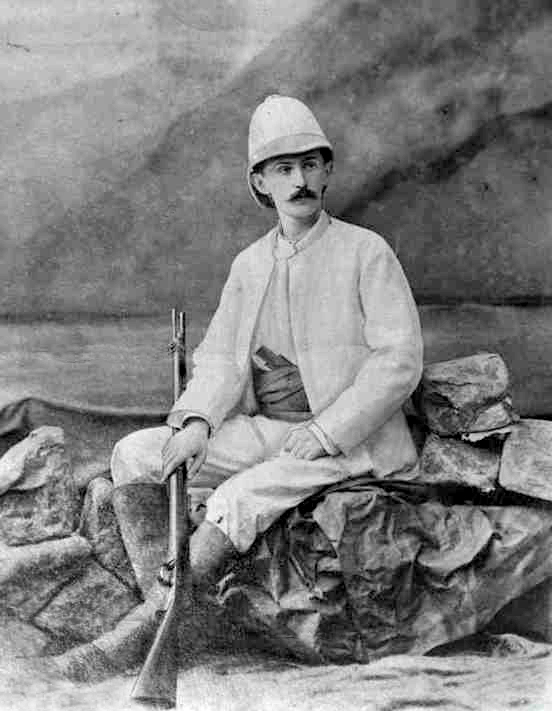Szolc-Rogoziński’s fascination with the little-known countries of Central Africa had its origins when, in his young years, he sailed in a Russian military flotilla from Kronstadt to Vladivostok in 1880, including around Africa and back. At the time, he was studying at the Kronstadt war school. The sea voyage inspired further research into the African region, especially Cameroon.
Karol was born in Kalisz to a Polish-German family – his father, Ludwik Scholtz, a wealthy textile manufacturer, was German, and his mother Malwina was Polish. Influenced by his mother, Karol grew up and decided to express his Polishness. He changed the spelling of his surname to Szolc, added his mother’s maiden name Rogoziński to it, and started using the first name Stefan.
His first expedition to Cameroon, on which he spent his mother’s inheritance took place in 1882. He persuaded Benedykt Tyszkiewicz and the Technical and Industrial Museum in Krakow to support it, making it a public matter. The writers Bolesław Prus and Henryk Sienkiewicz spoke enthusiastically about the voyage. He sailed from Le Havre under the French flag on the ship “Lucia Margarethe”, but the ship itself bore the Polish national colours and the coat of arms of Warsaw – the Siren.
In 1883, Rogozinski bought a part of Mandoleh Island in Ambas Bay from a local chief and installed a base for his Cameroonian expeditions there. He flew the Polish flag on the purchased portion. During his expeditions he discovered Lake Belombi-ba-Kotta, many waterfalls on the Petch and Mungo rivers. And in 1884 he conquered the volcanic cone Mnogo-ma-Etinoleh, which he named Mount Kraszewski.
Rogozinski also compiled dictionaries of the languages of the tribes, including Bamboko and Duala. These works are of great value today because of the subsequent changes in ethnic boundaries in the areas where these tribes lived.
Gaining the trust of the indigenous peoples, the Polish traveller bought more land into ownership and, in the face of German colonial inclinations in the Cameroon area, created a tribal federation, accepting the British protectorate. In the 1890s, he handed over his properties to French Catholic missionaries from the Congregation of the Holy Spirit, although he himself was an evangelical.
Colonial rivalry between England and Germany led to a public accusation by Reich Chancellor Otto von Bismarck that the Pole was carrying out anti-German activities. In 1895, the Germans occupied Cameroon, obliterating all traces of Rogozinski’s Polish expedition. Unfortunately, the explorer died tragically a year later in Paris.





